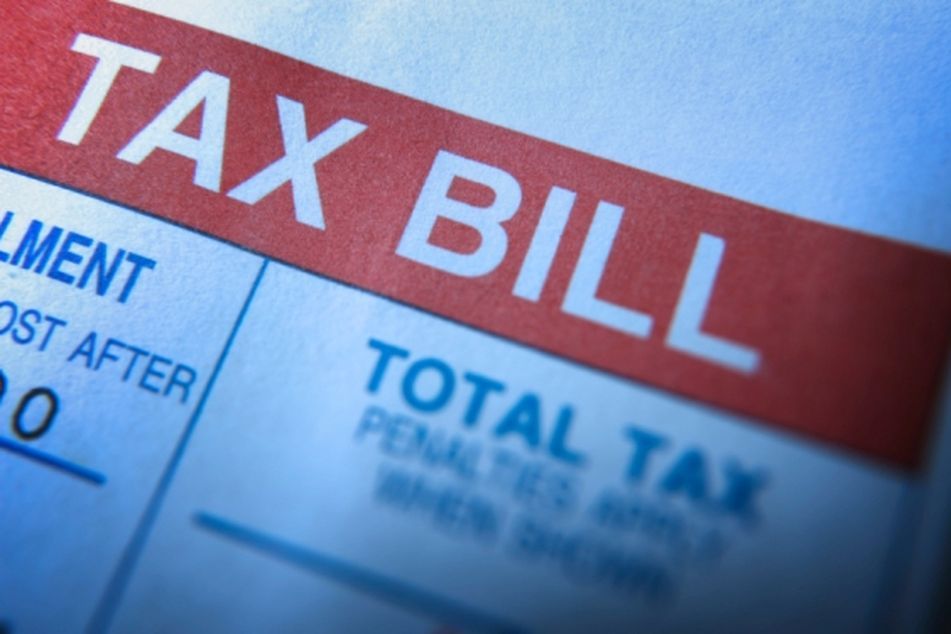Who might pay higher taxes as a result of the debt deal?

The private equity managers, oil companies and high-income earners that have been the Obama administration’s prime targets for…
The private equity managers, oil companies and high-income earners that have been the Obama administration’s prime targets for tax increases will be in Democrats’ crosshairs in the next phase of deficit-reduction efforts.
The debt-limit bill being considered in Congress today would empower a 12-member joint committee of lawmakers to seek $1.5 trillion in deficit cuts with a Dec. 23 deadline for the House and Senate to act. Democrats, who didn’t get any revenue increases included in today’s bill, are likely to return to their previous proposals, said Representative Chris Van Hollen of Maryland, the top Democrat on the House Budget Committee.
“The joint committee would be tasked to look at ways to reduce the deficit, and it has to be done in a balanced fashion,” Van Hollen told reporters today. “It has to include closing these corporate tax loopholes for special interests and looking at other revenue sources from the very top income earners.”
President Barack Obama in his budget plans has recommended taxing the profit share — or carried interest — earned by private equity managers, venture capitalists and others at ordinary income tax rates and not the more lightly taxed capital gains rate. He has called for ending tax benefits for oil and gas companies and for capping the itemized deductions of upper- income Americans.
Biggest Barrier
The biggest barrier to including revenue in the new committee’s bill this fall will be the same one that prevented Obama from capturing any new revenue for the deal to raise the debt ceiling: Republican opposition to tax increases of any kind, including curbing tax breaks.
Senate Minority Leader Mitch McConnell of Kentucky and House Speaker John Boehner of Ohio would each appoint three fellow Republicans to the committee, giving them the ability to exclude members who may be willing to consider new revenue.
“You end up with six no-tax-increase votes, and it’s hard to see how you do business,” said Clint Stretch, managing principal of tax policy at Deloitte Tax LLP in Washington.
Representative Charles Boustany of Louisiana, a Republican member of the tax-writing Ways and Means Committee, said he expects Boehner to appoint members who won’t support tax increases.
‘Fight Another Day’
That won’t stop Democrats from trying.
“We live to fight another day in trying to get some additional revenues into this equation,” said Senator Mary Landrieu, a Louisiana Democrat.
One potential difference this time is that Democrats have insisted that failure by the committee to act or to push its proposal through Congress would trigger automatic cuts in programs that both parties favor, including defense spending.
“It really just becomes an issue of defense vs. high- income,” said Chuck Marr, director of federal tax policy at the Center on Budget and Policy Priorities, a Washington research group that favors programs to assist low-income individuals.
The rules governing the committee’s search for deficit reduction may make it tough for lawmakers to address a broader overhaul of the tax code as part of their work.
Bush Tax Cuts
The Congressional Budget Office’s revenue baseline assumes that the Bush-era income tax cuts will expire at the end of 2012 as scheduled. Republicans want a future revenue level equal to extending all the cuts, while the administration wants to raise about $1.8 trillion above that level over the next decade. Measured against the CBO’s yardstick, either approach would be viewed as a tax cut, not deficit reduction.
As a result, any attempt to adjust tax rates may be an impossible task for the joint committee to accomplish, because those actions would be considered tax cuts compared with the tax rates already scheduled to go into effect.
“I think they can’t mess with rates, because the rates are high in the baseline,” Stretch said.
Senator Max Baucus, a Montana Democrat who chairs the Finance Committee, said he thinks the panel could choose a different baseline.
“As I understand it, the committee has the authority to use a different baseline in calculating whether the expiration of the Bush tax cuts cost money,” he said.
Targeted Increases
In addition, the targeted tax increases favored by Democrats are provisions that lawmakers may want to use to finance rate reductions below current levels.
Boustany said he expected lawmakers to continue their work on a tax overhaul independent of the joint panel’s efforts.
“We want to do tax reform the right way, in a very deliberative manner, which means going through all the hearings we’re going through now,” he said.
In a fact sheet released July 31, the White House said Obama could require action on revenue by vetoing an extension of the tax cuts for high earners when they expire in 2012.
The congressional emphasis on deficit reduction also could make it difficult for lawmakers to enact other deficit- increasing tax cuts before the election, Stretch said. Those include an Obama-backed extension of the payroll tax cut that expires at the end of the year and a tax holiday on repatriating offshore profit sought by companies such as Cisco Systems Inc. and Microsoft Corp.
Furthermore, dozens of targeted breaks such as the research and development tax credit and an international tax provision that benefits financial-services companies also expire at the end of 2011.
Such “extenders,” as they are known in Congress, will have to be addressed, Boustany said.
“At the very least, you’ll see some sort of an extenders bill,” he said. “What’s in it remains to be seen and maybe a very scaled-back bill, I just don’t know.”
–Bloomberg News–
Learn more about reprints and licensing for this article.







